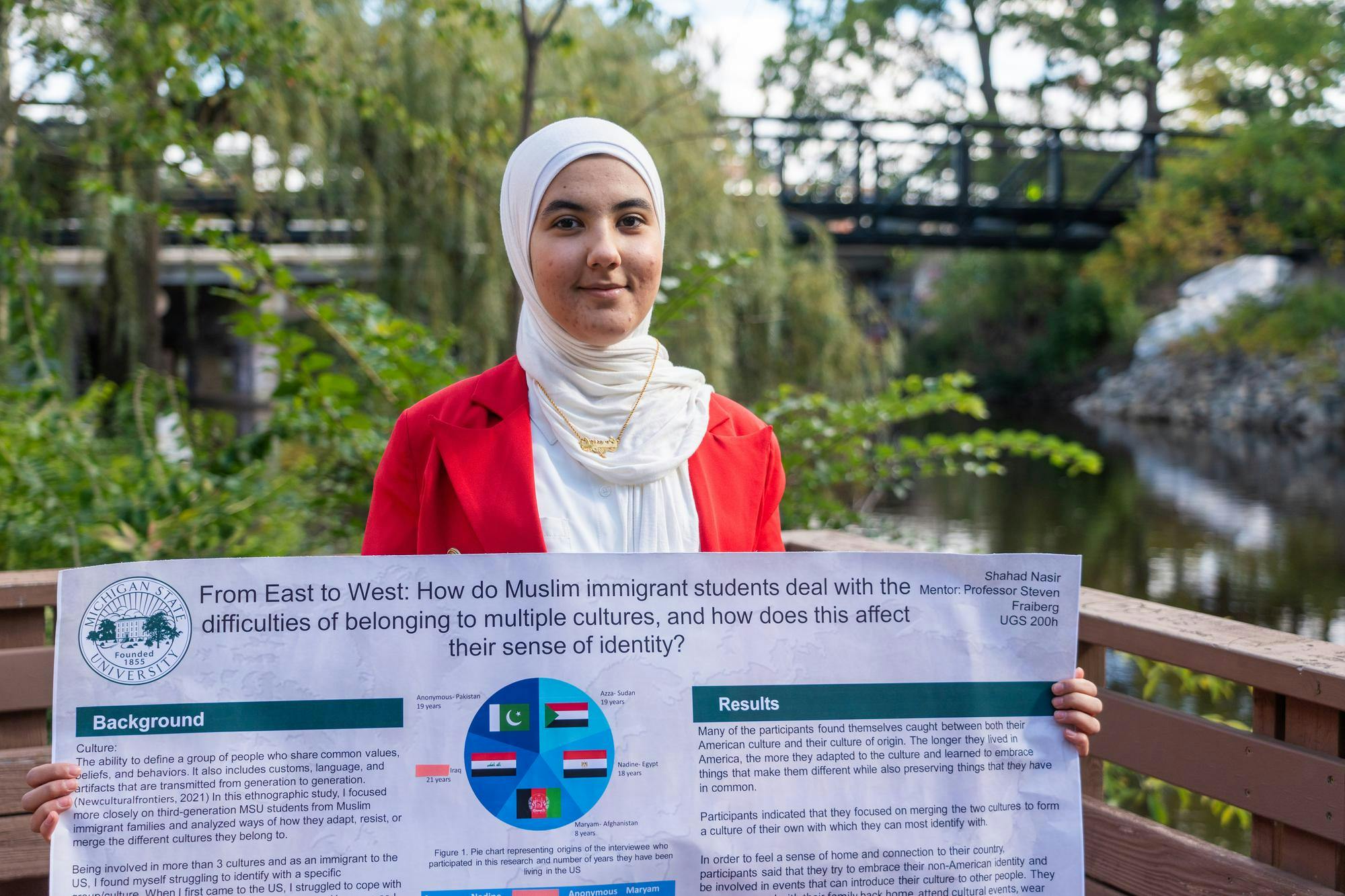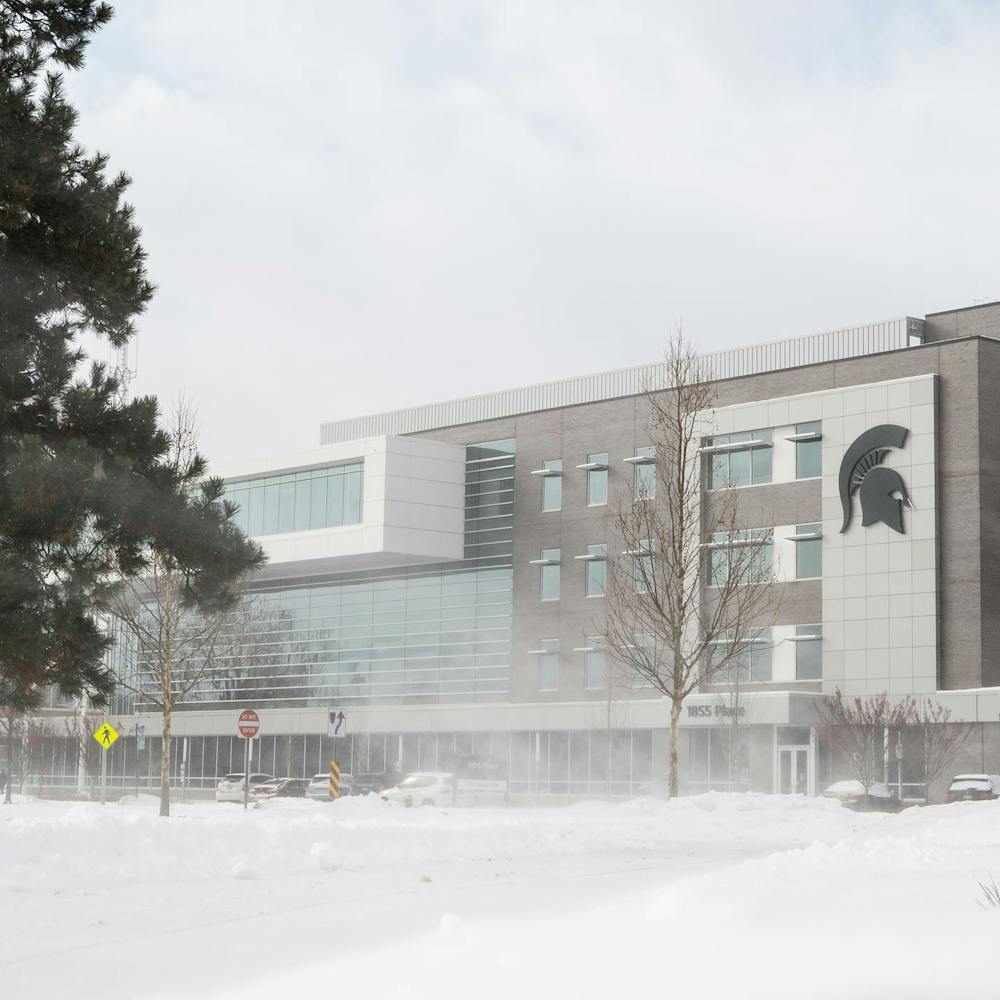There are currently 4,265 international students enrolled at Michigan State University. These students face a unique challenge of leaving behind their familiar way of life in exchange for their pursuit of education.
Shahad Nasir is a second-year student studying neuroscience. She also comes from an immigrant family and has experience with the struggles of fitting in and wondering where she belongs at MSU.
Her work has earned her a student spotlight from the MSU Undergraduate Research Office.
"I wanted to investigate this struggle further and see if other MSU students have it," Nasir said.
After taking a research class, Nasir became interested in the process of analyzing a subject in a deeper, more focused manner. She wanted a subject matter that was related to her study of neuroscience and psychology as well as personally interesting to her.
She chose to study students from immigrant families, specifically from Muslim backgrounds, also being from a Muslim background herself.
For this project, Nasir interviewed five students and reviewed survey answers to gain insight on how students from Muslim immigrant families handle the struggles of being from two different cultures and how this effects their sense of belonging.
Nasir said she initially struggled with American culture and tried to resist it, for the most part, but as time went on, she was able to adapt and merge the cultures she knew into something she could personally identify with.
"I can say that three of the participants said that they're not fully Americans, and they're not fully their original culture," Nasir said.
According to her findings, students who belong to multiple cultures often struggle with feeling like they don’t belong fully to either culture. Most often, they don't get the opportunity to speak their first language often. With this, many develop an American accent, which makes them stand out from their family and community back home.
For those who have the opportunity to travel between the US and their country of origin, there is often a struggle to stay connected to both cultures simultaneously.
One of the participants of Nasir's study said, "If I’m (in) Pakistan, or even just with my family at my house, I find it way easier to cope with Pakistani culture. If I’m in public in the US, then I find it harder to cope with the Pakistani culture, but easier to cope with the American (culture)."
Nasir found often times students had difficulties fitting in spaces where the outside culture was more predominant. She said an example of this would be when participants in her study would try to expose friends to their original culture when in the U.S., and when in their home country, the participants try to expose their friends to American culture.
One instance of this comes from another participant from Nasir's study named Nadine. Nadine helped create the Egyptian Student Association, a new club aimed at creating a space for Egyptian students and educating students on Egyptian culture.
Nadine is the social media manager for the club and posts about modern Egyptian news and culture.
In the conclusion of her research, Nasir highlights the ways international students might cope with adapting to a new culture. She puts an emphasis on not changing your identity to fit in to any one culture, but adapting and combining aspects from both cultures to create something with which you can identify.
Nasir said creating a new identity that prioritizes what you want to prioritize will help counteract the feeling of isolation.
"It is OK not to fit into one culture, to not be fully this, to expose multiple parts of your identity," Nasir said, "It’s OK to build your own culture."
Support student media!
Please consider donating to The State News and help fund the future of journalism.
Discussion
Share and discuss “Featuring MSU student research: How students belong to multiple cultures ” on social media.







